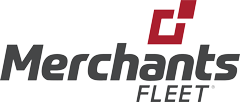Fuel has always been one of the most variable and impactful costs for fleet operators. While advancements in vehicle technology continue to improve fuel efficiency, prices at the pump remain largely influenced by external factors—many of which are beyond any fleet’s control.
In 2024, fleets saw a modest reprieve. According to the U.S. Energy Information Administration (EIA), average retail gasoline prices declined by approximately 10% compared to 2023, thanks to lower crude oil prices and softened demand. While this drop brought short-term relief, history reminds us that fuel prices can shift rapidly.

Fuel prices are also heavily influenced by seasonality and global market conditions. Warmer months typically bring increased demand due to higher travel volumes, often driving prices higher during spring and summer. On a broader scale, international trade policies, such as tariffs on Canadian oil, can also disrupt supply channels and exert upward pressure on fuel costs.
For fleet managers, the question isn’t just how to react to these changes, but how to build a strategy that can withstand them.
Key Strategies for Managing Fuel Volatility
While each fleet faces unique operational challenges, there are a few proven strategies that can help any organization navigate fuel uncertainty:
1. Leverage Telematics
Real-time data can be one of the most effective tools for controlling fuel use. Telematics systems help fleet managers monitor vehicle performance, monitor driver behavior, track idling, and lead to smarter, more fuel-efficient driving patterns across the board.
2. Prioritize Preventive Maintenance
A well-maintained vehicle is a more fuel-efficient vehicle. Simple issues like underinflated tires, dirty air filters, or outdated oil can quietly drive up fuel costs. Regular, preventive maintenance not only extends vehicle lifespan, it ensures vehicles are operating at their most efficient.
3. Promote Fuel-Efficient Driving Habits
Driver behavior has a significant impact on fuel use. Training drivers to reduce harsh acceleration, avoid excessive idling, and follow optimized routes can result in measurable savings. Many fleets are now using coaching tools that pair with telematics to support safer, more efficient driving practices.
4. Keep Your Vehicles Current to Maximize Savings
A solid Model Year Plan goes beyond just ordering, it helps you pinpoint each vehicle’s Economic Useful Life and identify the best time to replace. This strategic approach will help you boost fuel efficiency, cut maintenance costs, and increase resale value, delivering real savings while keeping your fleet running at peak performance.
5. Increase Visibility Through Fuel Management Tools
Fuel card programs and digital dashboards provide essential visibility into fuel spending. Monitoring this data can help identify inefficiencies, flag unusual purchases, and provide benchmarks that inform broader cost-reduction efforts.
6. Use Data to Build Flexible, Future-Focused Strategies
Perhaps the most important shift is moving from reactive to proactive. Fleets that rely on consistent, clear data can better understand trends and make more strategic decisions. For example, knowing which vehicle types or routes are the most fuel-intensive can inform decisions about vehicle replacement or electrification over time.
Looking Ahead: Turning Volatility into Opportunity
While 2024 brought some fuel price relief, experienced fleet leaders know that uncertainty is always part of the equation. The most resilient fleets aren’t the ones that try to predict fuel prices, they’re the ones that plan around them.
At Merchants, we provide the insights, tools, and personalized support fleets need to turn fuel volatility into a strategic advantage. Whether it’s optimizing existing assets, refining maintenance schedules, or taking a closer look at your fleet’s fuel profile, having the right data, and the ability to act on it, can mean the difference between simply weathering cost fluctuations and thriving through them.
To explore how we can help you build a smarter, more resilient fuel strategy, reach out to your Merchants representative today.
